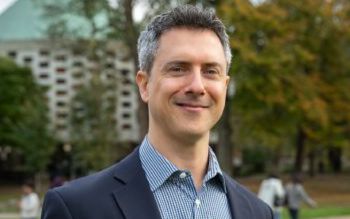Why climate obstruction is a hot topic at COP30
Posted on behalf of: Student Communications
Last updated: Monday, 24 November 2025

Guy Edwards is a PhD candidate in International Relations, co-director of the LAC Research Network at Sussex and a scholar at the Climate Social Science Network. He recently attended COP30 (Conference of the Parties) in Brazil. Below he discusses his findings:
Although Colombia’s government has pledged to stop granting new contracts for oil and gas exploration as part of its commitment to phase out fossil fuels, the decision has sparked fierce opposition in the national media.
Some of those opposing the pledge are using “discourse of climate delay”. These discourses accept climate change is real but downplay the need for action, citing imperfect policy options or no alternatives to fossil fuels.
Opponents to the contracts pledge frequently combine delay discourses with warnings of energy blackouts, lost jobs or economic collapse. And many Colombian media outlets fail to challenge these claims.
My recent article in Climate and Development examines how sections of Colombia’s national media are not neutral observers in the energy transition debate but actively enable, amplify, and circulate these delay discourses.
I presented these findings at COP30 in Belém, Brazil, at Colombia’s country pavilion. The event was organised with various experts, including a former Colombian minister of mines and energy and other civil society specialists. We discussed how these climate delay discourses can shape public debate on the energy transition and options to confront them.
Colombia is pushing for a global roadmap at COP30 to phase out fossil fuels, strengthen links between climate and biodiversity, and secure participation and financing for communities.
Alongside the Fossil Fuel Non-Proliferation Treaty Initiative, it is also planning the First International Conference for the Phase-Out of Fossil Fuels to be held in Colombia in 2026.
These efforts are unfolding amid rampant climate obstruction in Colombia and around the world – a reminder that sophisticated networks of actors are working to undermine progress on climate action both inside the COP30 negotiation halls and within countries themselves.

